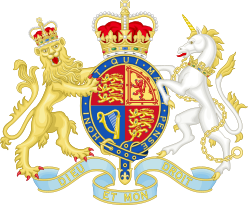 | |
| Presented | Wednesday 22 November 2017 |
|---|---|
| Country | United Kingdom |
| Parliament | 57th |
| Party | Conservative Party |
| Chancellor | Philip Hammond |
| Total revenue | £769 billion |
| Total expenditures | £809 billion |
| Deficit | £40 billion (1.9% of GDP) |
| Website | |
2018› | |
The November 2017 United Kingdom budget, sometimes described as the Autumn 2017 United Kingdom budget, was delivered by Philip Hammond, the Chancellor of the Exchequer, to the House of Commons on Wednesday, 22 November 2017. It was Hammond's second as Chancellor of the Exchequer since being appointed to the role in July 2016. [1] [2]
Contents
- The budget
- Economic statistics
- NHS (England)
- Pensions
- Living wage
- Tax
- Education (England)
- The regions
- Oil industry
- Transport (England)
- Research and development
- Industry and charges on plastic waste.
- Universal credit
- Housing (England)
- Brexit fiscal failure issues
- Banking
- Economic growth
- Responses
- Debate
- References
- External links
